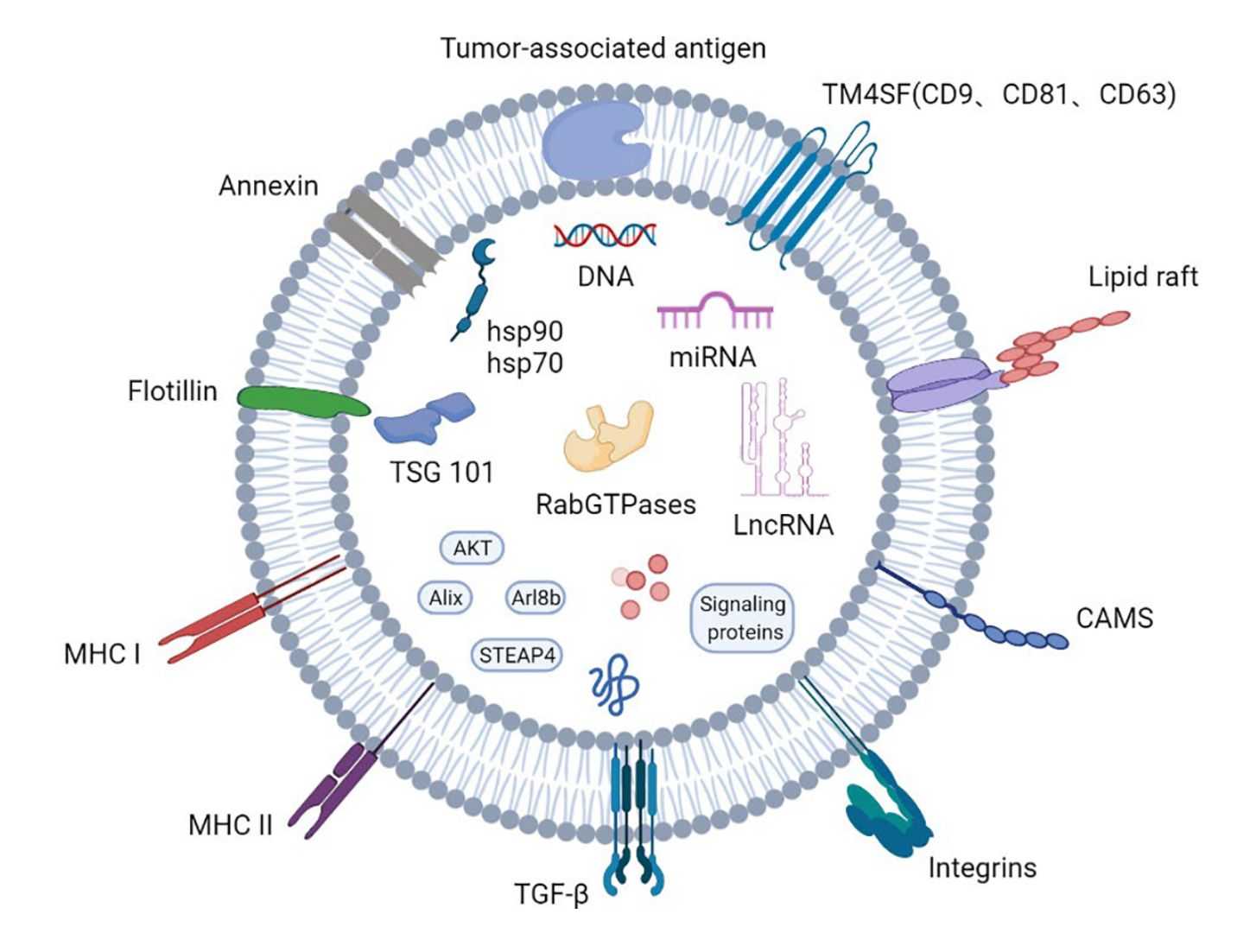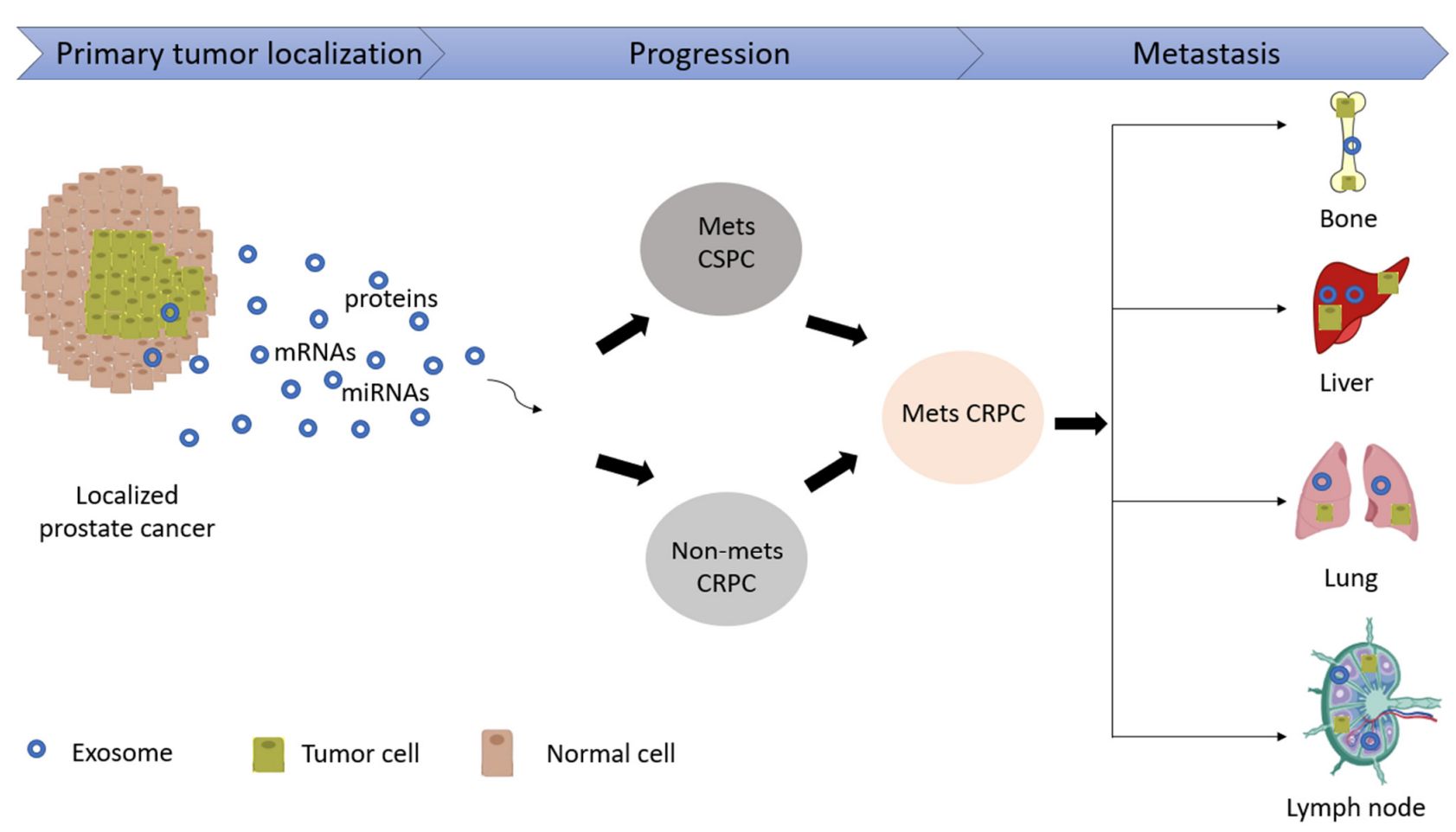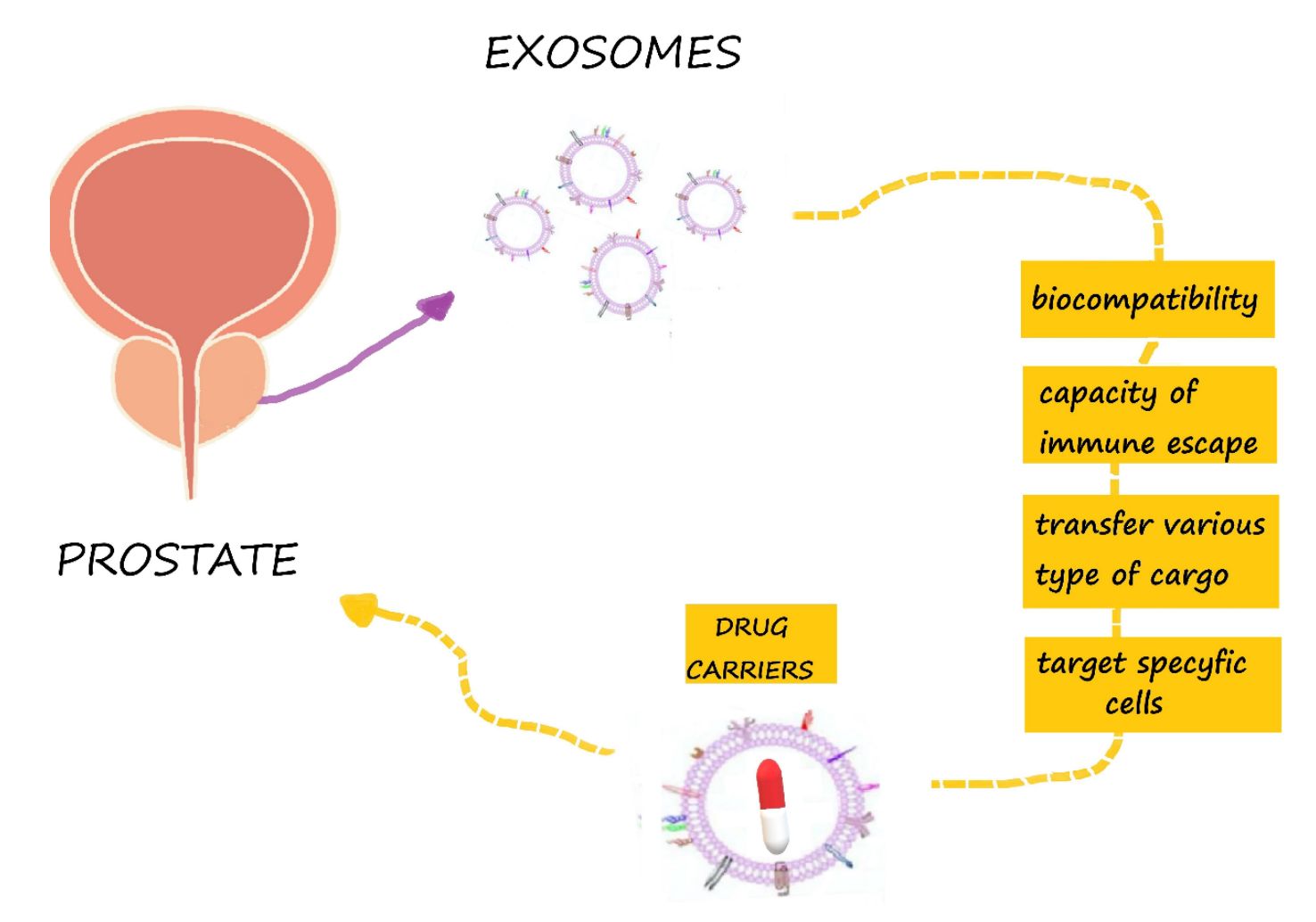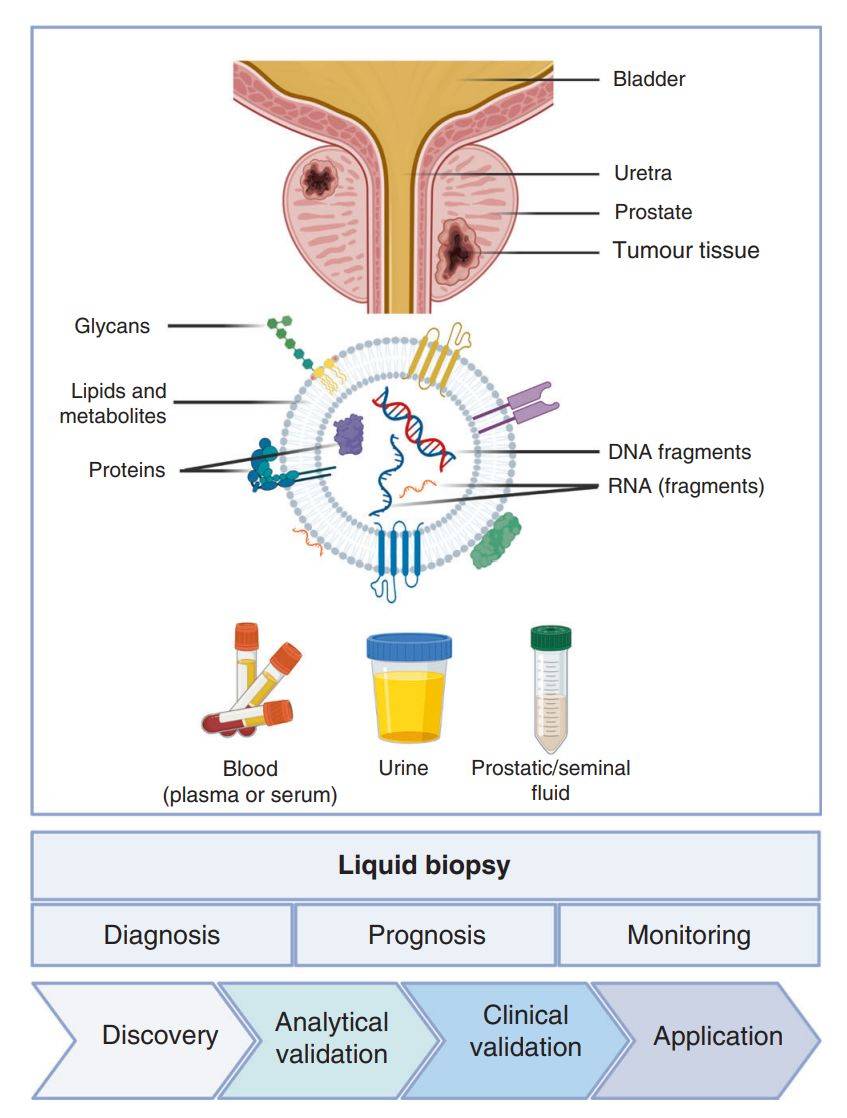Exosome Research in Human Prostatic Carcinoma
Prostate cancer/ Prostatic carcinoma (PCa) is a common malignancy in men worldwide. Several PCa hormonal therapies, such as androgen receptor (AR) antagonists or supraphysiologic androgen levels (SALs), are available to reduce cancer cell proliferation. However, conventional anti-PCa therapies are ineffective in patients with advanced or metastatic disease. Clinical management of PCa is challenged by the possibility of progression to CRPC and the high rate of bone metastasis.
Currently, the gold standard for PCa diagnosis is prostate biopsy, initially based on prostate-specific antigen (PSA) values. However, the low sensitivity and specificity of PSA have led to overdiagnosis and overtreatment of PCa. Therefore, the search for new prognostic biomarkers for PCa continues.
Why Choose Exosomes for Diagnosis and Treatment of PCa?
Exosomes are carriers of different biomolecules such as lipids, proteins, and nucleic acids. The composition of exosomes and the fact that release increases during tumorigenesis opens up prospects for possible application in the research of new biomarkers. Moreover, exosomes have biophysical properties such as stability, biocompatibility, permeability, low toxicity, and low immunogenicity, which are critical for the successful development of innovative drug delivery systems. Thus, exosomes can be used as effective chemotherapeutic carriers to improve the regulation of target tissues and organs. Exosomes can transport different types of cargo and target specific cells. Chemotherapeutic agents, natural products, and RNA have been encapsulated for the therapy of PCa.
 Figure 1. Schematic diagram of an exosome. (Feng S, et al., 2022)
Figure 1. Schematic diagram of an exosome. (Feng S, et al., 2022)
The Role of Exosomes in PCa
Exosomes are associated with PCa progression and bone metastasis. Exosome-mediated intercellular communication plays an integral role in the transfer of information between cancer cells, the tumor microenvironment, and metastatic sites.
 Figure 2. The potential role of exosomes in prostate cancer progression. (Akoto T, Saini S., 2021)
Figure 2. The potential role of exosomes in prostate cancer progression. (Akoto T, Saini S., 2021)
- Exosomes in PCa Tumor Microenvironment and Angiogenesis
Cancer cells require the tumor microenvironment (TME) to proliferate continuously, evade immune responses, resist apoptosis, invade, and metastasize. The TME consists of stromal cells, immune cells, and the extracellular matrix (ECM), which interact with tumor cells to enhance their survival and growth. Exosomes enhance therapeutic invasion and metastasis by disrupting cell adhesion and degrading collagen and fibronectin via integrins. For example, PCa-derived exosomes contain Src proteins that activate adhesion plaque kinase via integrins, leading to angiogenesis.
- Exosomes Mediate Formation of the Pre-metastatic Microenvironment and Communication in Organ-Specific Metastasis
In addition to the role at the site of metastasis, exosomes also communicate with distant, pre-metastatic organ sites. Persistent long-distance intercellular communication mediated by factors from the primary tumor promotes neutrophil (PMN) formation. These factors cross the vascular and interstitial spaces and bind to the plasma membrane of recipient cells at pre-metastatic organ sites. A study demonstrated that exosome-mediated communication between PCa cells and bone marrow is mediated by cholesterol homeostasis. By lowering myeloid cholesterol before treatment with PCa exosomes, the uptake of PCa exosomes by recipient myeloid cells is blocked and results in reduced metastasis.
- Exosomes in PCa Lymphatic Metastasis
PCa-derived exosomes contribute to the aggressive phenotype of PCa during metastasis through the lymphatic pathway, where tumor cells infiltrate lymph nodes to reach their target sites. Research has found that PCa patients overexpress Survivin in their exosomes, which belongs to the inhibitor of apoptosis (IAP) family and contributes to lymph node metastasis of cancer cells. In addition, researchers demonstrated that integrin α 2 subunits (ITGA2) are packaged in metastatic PCa-derived exosomes. Knockdown of these ITGA2 inhibits the release of exosomes into recipient cells, suggesting that ITGA2 may play a role in enhancing lymph node metastasis.
- Exosomes in PCa Drug Resistance
Chemotherapy remains one of the traditional approaches to treating advanced PCa. However, this approach has been shown to lead to drug resistance in tumor cells. Recently, it was demonstrated that PCa resistance to enzalutamide and the induction of a neuroendocrine differentiation state is mediated through exosomes. Inhibition of exosome release partially restores sensitivity to enzalutamide resistance. In addition, exosomes cause resistance in docetaxel-sensitized PCa cells. Multidrug resistance protein 1/P-glycoprotein (MDR-1/P-gp) is a transporter protein implicated in the exocytosis of many foreign substances, including anticancer drugs. Drug resistance in PCa cells can be reduced by knocking down exosomal P-gp.
Exosomes play an important role in the development and progression of PCa by promoting the proliferation of cancer cells, evading immune or drug clearance, and creating an appropriate microenvironment for the spread of cancer.
However, exosomes are a "double-edged sword", which can be an effective diagnostic tool, as they facilitate the development of cancer and at the same time expose the presence of cancer. In addition, the close association between exosomes and cancer provides new strategies for effective cancer treatment.
We offer a comprehensive range of cancer-derived exosome products that can be used for biomarker discovery for PCa diagnosis. Our products can also be used to engineer exosomes for use as targeted delivery tools for cancer therapeutics or to directly target exosomes for cancer therapy.
| Cat No. | Product Name | Source |
| Exo-CH01 | HQExo™ Exosome-PC-3 | Exosome derived from human prostatic carcinoma cell line (PC-3 cell line) |
| Explore All Exosomes Isolated from Human Prostatic Carcinoma Cell Line | ||
Exosomes as Drug Carriers for PCa Therapy
Exosomes are stable, biocompatible, permeable, low-toxicity, and low-immunogenicity, and thus can be used as effective drug carriers. Currently, chemotherapeutic drugs, natural products, and RNA have been loaded into exosomes for the treatment of PCa. Exosomes are capable of transporting different types of cargo and targeting specific cells to effectively kill tumor cells while minimizing the side effects of the drugs. Researchers have demonstrated that exosomes modified with targeted ligands can be used to deliver adriamycin to tumors. In addition, cancer cell-derived exosomes can be used as effective carriers of paclitaxel by delivering paclitaxel to PCa cells.
 Figure 3. Exosomes are promising drug carriers in prostate cancer therapy. (Lorenc T, et al., 2020)
Figure 3. Exosomes are promising drug carriers in prostate cancer therapy. (Lorenc T, et al., 2020)
Exosomes as Biomarkers for PCa Diagnosis
Exosomes are increasingly becoming a rich source of biomarkers for cancer diagnosis. Exosomes are involved in a range of biological signaling pathways, carry cargoes in the tumor microenvironment, and can be detected in prostate secretions, and thus can be used as biomarkers for PCa diagnosis. By analyzing patients' plasma exosomal miRNAs, miR-1290 and miR-375 were identified as potential prognostic biomarkers for predicting CRPC. Exosomal miR-1246 is a potential exosomal biomarker for differentiating normal, benign, and aggressive PCa. exosomal platelet reactive protein 1 was recently reported as a potential biomarker for detecting treatment-induced neuroendocrine differentiation (NED) in patients with metastatic CRPC. Since aberrant androgen receptor signaling can contribute to drug resistance in PCa cells through the expression of the truncated AR variant 7 (AR-V7) protein, the detection of AR-V7 in exosomes, CTCs, and circulating tumor RNA (ctRNA) of PCa patients is a potential biomarker for CRPC. These studies have emphasized the clinical significance of exosomes as PCa biomarkers.
 Figure 4. Exosomes as liquid biopsies for prostate cancer. (Ramirez-Garrastacho M, et al., 2022)
Figure 4. Exosomes as liquid biopsies for prostate cancer. (Ramirez-Garrastacho M, et al., 2022)
Creative Biostructure is committed to providing high-quality exosome products and trustworthy exosome one-stop services to help clients advance in the life science field. If you have any questions or requirements, please feel free to contact us.
References
- Feng S, et al. The Potential Role of Exosomal Proteins in Prostate Cancer. Front Oncol. 2022. 12: 873296.
- Akoto T, Saini S. Role of Exosomes in Prostate Cancer Metastasis. International Journal of Molecular Sciences. 2021. 22(7): 3528.
- Lorenc T, et al. Exosomes in Prostate Cancer Diagnosis, Prognosis and Therapy. Int J Mol Sci. 2020. 21(6): 2118.
- Ramirez-Garrastacho M, et al. Extracellular vesicles as a source of prostate cancer biomarkers in liquid biopsies: a decade of research. Br J Cancer. 2022. 126(3): 331-350.
- Ludwig M, et al. Emerging Role of Extracellular Vesicles in Prostate Cancer. Endocrinology. 2021. 162(9): bqab139.
